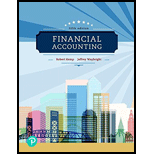
Case 2. The board of directors for Atlantic Corporation met in January to address growing concerns about the declining stock price of the firm. Because the price per share was so low, the board decided that the company would buy back 10 million shares of outstanding stock. During the year, Atlantic Corporation repurchased the shares at a total cost of $62 million. With fewer shares in the hands of shareholders, the board of directors declared and paid a dividend on only those remaining shares outstanding. As a result of these activities, the price per share rose dramatically in only 10 months. The board of directors then felt it best to reissue the
Why does the board of directors want to recognize the $80 million excess from the treasury stock transactions as a gain? Why does the accountant want to recognize the $80 million as an increase in total equity? Who is right? Are any ethical issues involved? Does the board of directors have a strong argument that it does not matter whether the stock was Atlantic Corporation stock or any other company because all stock is the same? Do you have any additional thoughts?
Want to see the full answer?
Check out a sample textbook solution
Chapter 10 Solutions
Financial Accounting (5th Edition) (What's New in Accounting)
- What is the length of the firms cash conversion cycle?arrow_forwardOn January 1, 2018, Ashton Corp. sold equipment to Bennett Ltd. (a wholly owned subsidiary) for $180,000 in cash. The equipment had originally cost $150,000 but had a book value of only $95,000 when transferred. On that date, the equipment had a four-year remaining life. Depreciation expense is computed using the straight-line method. Ashton earned $275,000 in net income in 2018 (not including any investment income), while Bennett reported $105,000. Ashton attributed any excess acquisition-date fair value to Bennett’s patented technology, which was amortized at a rate of $8,000 per year. What is the consolidated net income for 2018? Help me with thisarrow_forwardNeed Ans financial accounting questionarrow_forward
 Auditing: A Risk Based-Approach (MindTap Course L...AccountingISBN:9781337619455Author:Karla M Johnstone, Audrey A. Gramling, Larry E. RittenbergPublisher:Cengage Learning
Auditing: A Risk Based-Approach (MindTap Course L...AccountingISBN:9781337619455Author:Karla M Johnstone, Audrey A. Gramling, Larry E. RittenbergPublisher:Cengage Learning EBK CONTEMPORARY FINANCIAL MANAGEMENTFinanceISBN:9781337514835Author:MOYERPublisher:CENGAGE LEARNING - CONSIGNMENT
EBK CONTEMPORARY FINANCIAL MANAGEMENTFinanceISBN:9781337514835Author:MOYERPublisher:CENGAGE LEARNING - CONSIGNMENT

